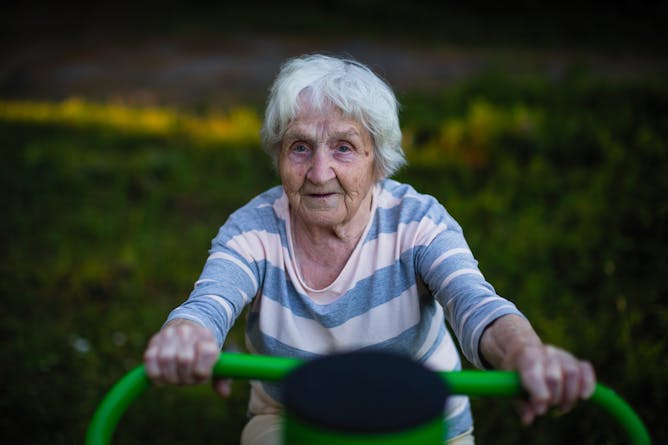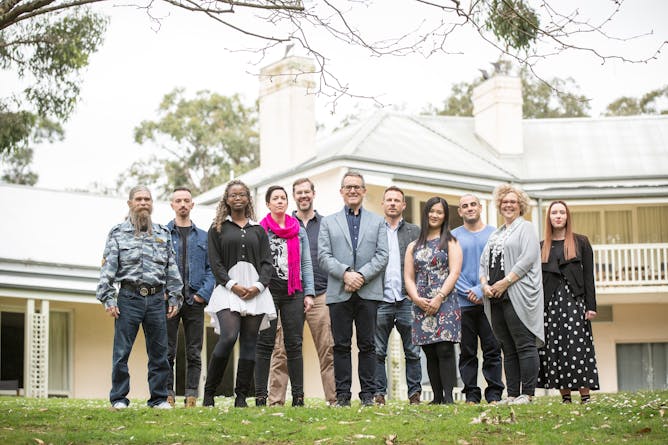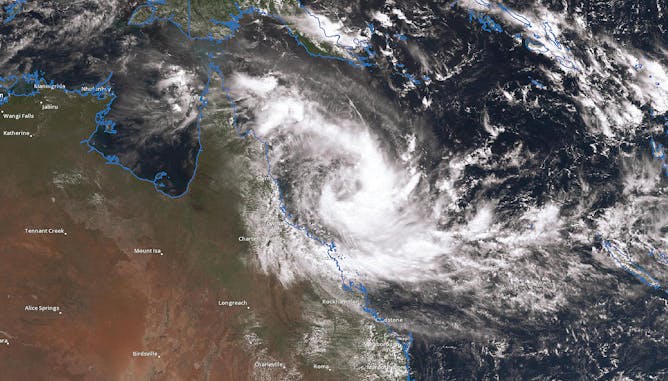|
|
|
Your weekly dose of evidence
|
|
If you don’t have plans this weekend, why not get out and spend some time in nature. Or work on that hobby you haven’t been able to find time for. Even better, get active with some friends then relax over a healthy meal. It’s not an indulgence – as Jerome Sarris and Joe Firth explain, these activities can improve our mood, reduce stress and help manage our mental health.
If you’re looking for something to watch, check out part one of How ‘Mad’ Are You, the SBS series where experts try to guess if the contestants have a mental illness. It’s a controversial format, writes Fincina Hopgood, but it does a powerful job of challenging our assumptions of what mental illness looks like.
In the meantime, you can catch up below on all our mental health coverage from the week, plus some recent highlights from the archives. Have a great weekend.
|
Fron Jackson-Webb
Deputy Editor/Senior Health + Medicine Editor
|

|
|
|
|

Getting a good dose of nature can boost your mental health.
Marion Michelle
Jerome Sarris, Western Sydney University; Joe Firth, Western Sydney University
Beyond medication and psychological treatments, there are steps all of us can take to alleviate stress, improve our mood and take care of our mental health. Here are five to get you started.
|

People with dementia experience a range of psychological symptoms and behaviour changes.
From shutterstock.com
Lila Landowski, University of Tasmania
With an ageing population, dementia is becoming more and more prevalent. But what does dementia actually do to the brain to cause changes in behaviour?
|

If someone has a fear of dogs, a therapist might try to reframe their beliefs to ones such as: ‘most dogs are friendly’
Erik Odiin/Unsplash
Carol Newall, Macquarie University; Rick Richardson, UNSW
A recent study found that half of patients who had therapy to help them cope with painful memories had a relapse four years later. So, is there a way to erase unwanted memories for good?
|

Psychiatrist Steve Ellen and the ten participants put themselves – and their stories – out there to increase awareness about living with mental illness.
SBS/Blackfella Films
Fincina Hopgood, University of New England
Some viewers will object to the reality TV format of How 'Mad' Are You, but the show achieves its aim of breaking down stigma.
|

A number of complex factors leads to someone reaching a point where they can no longer cope. We can’t let them get there in the first place.
Greg Rakozy/Unsplash
Helen Stallman, University of South Australia
Many current interventions focus on raising awareness of suicide, or preventing suicide at the point just prior to death. Many of those not assessed as being at "high risk" are left without support.
|
From the archives: mental health
|

Anthony Jorm, University of Melbourne; Betty Kitchener, Deakin University
Contrary to the common belief you shouldn't talk about suicide because it plants the idea, asking someone if they plan to harm themselves can help.
| |

Emma Austin, University of Newcastle; Anthony Kiem, University of Newcastle; Brian Kelly, University of Newcastle; David Perkins, University of Newcastle; Jane Rich, University of Newcastle; Tonelle Handley, University of Newcastle
Farmers experience drought-related stress. Improving their mental health enhances adaptive capacity and resilience. Drought support must address relationships between drought and mental health.
|

Danielle Einstein, Macquarie University
Reaching out for reassurance every time you have a doubt, or problem, might seem helpful in the short term. But learning to face uncertainty is essential to managing our mental health.
| |

Louise Newman, University of Melbourne
A boy has been flown to Australia from Nauru for urgent medical treatment for suspected resignation syndrome.
|
|
|
Podcast
|

The Bureau of Meteorology’s tropical cyclone outlook is out today.
AAP Image/Bureau of Meteorology, Japan Meteorological Agency
Madeleine De Gabriele, The Conversation; Wes Mountain, The Conversation
Australia must come to terms with some fundamental shifts in our weather patterns. This month, Andrew Watkins from the BOM and climate scientist Joelle Gergis explore what's in store.
|
|
|
| |
Featured jobs
|

|
Deakin University — Burwood, Victoria
|

|
RMIT University — Melbourne, Victoria
|

|
La Trobe University — Melbourne, Victoria
|

|
University of Melbourne — Parkville, Victoria
|
|
|
|
Featured events
|

|
Hilton Hotel - Brisbane; Mural Hall - Melbourne; Doltone House Hyde Park - Sydney; National Museum of Australia - Canberra, Brisbane, Melbourne, Sydney, Canberra, New South Wales, 2000, Australia — The Institute of Managers and Leaders
|

|
University of Sydney, Sydney, New South Wales, 2006, Australia — University of Sydney
|

|
UTS Business School, 14-28 Ultimo Road, Ultimo, New South Wales, 2007, Australia — University of Technology Sydney
|

|
Monash University, Building 12, 15 Ancora Imparo Way, Clayton, Victoria, 3800, Australia — Monash University
|
|
|
|
| |
| |
| |
| |
| |
|
|
|
|
|
|
|